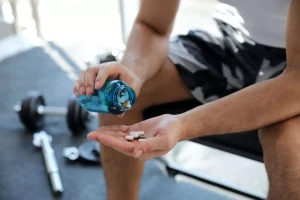Harmful Interactions National Institute on Alcohol Abuse and Alcoholism NIAAA

As with other chronic health conditions, treatment should be ongoing and should be adjusted based on how the patient responds. Treatment plans need to be reviewed often and modified to fit the patient’s changing needs. Drinking alcohol with this medicine may increase your chance of having liver problems or make your liver problems worse. Tell your doctor if you have liver disease or consume large amounts of alcohol on a regular basis. Niacin should not be used if you have liver problems or a history of liver disease, elevated liver enzyme levels or current liver disease.
Inpatient and Outpatient Treatment

Antipsychotics may be prescribed for people with conditions such as bipolar disorder or schizophrenia. Cough syrup and laxatives may have some of the highest alcohol concentrations. This document contains information for pregnant people with a SUDs and preparing to deliver. This advisory reviews the evidence on prescription stimulant misuse among youth and young adults. Prescription drug misuse is when someone takes a medication the wrong way. If you are going to drink, it’s important to know how alcohol affects you and how much is too much.
Topics under Alcohol Use Disorder

Alcohol can interfere with the way a medicine works in the body, or it can interfere with the way a medicine is absorbed from the stomach. If your medicine has similar side-effects as being drunk, those effects can be compounded. But you may not be aware that mixing certain medicines with alcohol can increase Alcohol and Pills the effects and put you at risk. Although most drugs are safe and effective when used as directed, it’s important to read warning labels on all medications. Many popular pain medications — and cough, cold, and allergy medications — contain more than one ingredient that can adversely interact with alcohol.
- In 1948, Danish researchers trying to find treatments for parasitic stomach infections discovered the alcohol-related effects of disulfiram when they too became ill after drinking alcohol.
- One ingredient in some cough suppressants called dextromethorphan (DXM) can be especially dangerous because it can cause extreme sedation and respiratory depression.
- Anyone with kidney or liver issues should not take naltrexone without guidance from a healthcare professional.
Bupropion Hydrobromide Dosage and Administration
- This is because women’s bodies generally have less water than men’s bodies.
- Because he is a member of a support group that stresses the importance of anonymity at the public level, he does not use his photograph or his real name on this website.
- The alcohol and drugs therefore compete for the enzyme, and this slows their rate of clearance from the body, causing them to remain in the blood longer, and at higher concentrations that make overdoses and accidents more likely.
- They may be able to help someone achieve sobriety and maintain recovery.
The risks of mixing antipsychotics and alcohol include impaired judgment, dizziness, drowsiness, low blood pressure, the worsening of a psychiatric condition, an increased risk of suicide, and more. Alcohol can interact with certain drugs or exacerbate the medical and mental health conditions you’re being treated for. They can provide personalized guidance based on your specific medications https://ecosoberhouse.com/ and health status. If you’re drinking excessively or regularly, you are increasing the risk of adverse medication reactions. The combination of medication and alcohol can lead to serious health consequences, including overdose and even death. “It’s generally advisable to avoid drinking alcohol when taking medications,” says psychiatric clinical pharmacist Mei T. Liu, PharmD, BCPP.
Medications for Alcohol Use Disorder

Combining alcohol with medications used to treat hypertension (high blood pressure) can cause dizziness, fainting, drowsiness, and arrhythmia (irregular heartbeat). If you take medications for arthritis, it is important to know that mixing them with alcohol can increase your risk for stomach ulcers and bleeding in the stomach, as well as liver problems. It’s important to note that this list is not exhaustive and may not include every medication you are taking. If you are not sure if you can safely drink alcohol while taking a certain medication, read the label carefully and consult with a pharmacist or doctor.
National Institute on Alcohol Abuse and Alcoholism (NIAAA)
When used as prescribed, these medications can be helpful in the short-term; but when overused or combined with drugs and/or alcohol, serious side effects, physical dependence, or overdose can occur. Is it bad to have a drink from time to time if you have chronic pain? As long as you are not taking medications that interact with alcohol, probably not. However, moderate to heavy drinkers should definitely consider breaking the habit. Women are more prone to dangerous drug interactions, liver damage, and other alcohol-induced health issues than men. With the Sinclair Method, people only take Revia or Vivitrol before drinking and never otherwise.
Find more top doctors on
In some cases, mixing alcohol with medications can lead to an overdose or alcohol poisoning—both of which are potentially life-threatening medical emergencies. If you take prescription medication or use a specific medication every day, ask your doctor if it is okay for you to drink alcohol. You may be able to consume a limited amount safely, as long as you follow certain rules (for example, waiting at least four hours after taking your daily dose before having an alcoholic drink). When you recommend or prescribe a medication that can interact with alcohol, this scenario presents a natural opening to review or inquire about a patient’s alcohol intake. The potential for a harmful interaction may provide a compelling reason for patients to cut down or quit drinking when warranted (see Core articles on screening and brief intervention). Consider the risks to the mother of untreated depression and potential effects on the fetus when discontinuing or changing treatment with antidepressant medications during pregnancy and postpartum.
Alcohol Interactions: A Significant and Increasing Danger

Shortly thereafter, the FDA approved disulfiram to treat alcoholism. It was first manufactured by Wyeth-Ayerst Laboratories under the brand name Antabuse. “The most robust finding in the study is that those receiving any medication did much better than those who received no pills at all,” says Professor Barbara Mason, of Scripps Research Institute, and an author of the study. There is support available for people who are experiencing difficulties with alcohol use.
Video: Why are Drugs So Hard to Quit?
- Similar types of neuropsychiatric manifestations reported during postmarketing experience in patients receiving the drug for smoking cessation.
- The Sinclair Method is the standard treatment protocol for alcohol dependence in Finland, the method is also used in the U.K., but the method has yet to catch on in the United States.
- Talk to your doctor first if you have more than 1 to 2 alcoholic drinks daily and you take a statin.
- Up to half of people with AUD will experience some withdrawal symptoms when easing off alcohol, experts say.
- And because both substances impair memory (Rohypnol, the “date rape” drug, is a potent member of the same drug class as Xanax), the combination can cause users to forget their actions while under the influence.
Different types of medications interact with alcohol differently and can have harmful effects, even herbal remedies. Whatever kind of medication you’re taking, whether prescribed or over-the-counter, you need to know the risks. The way this process works is when people normally drink alcohol, endorphins are released into the brain, and this reinforces the behavior of drinking alcohol. Much like when Pavlov’s dogs were presented with food when a bell was rung, these dogs became conditioned to salivate at the sound of the bell alone.

